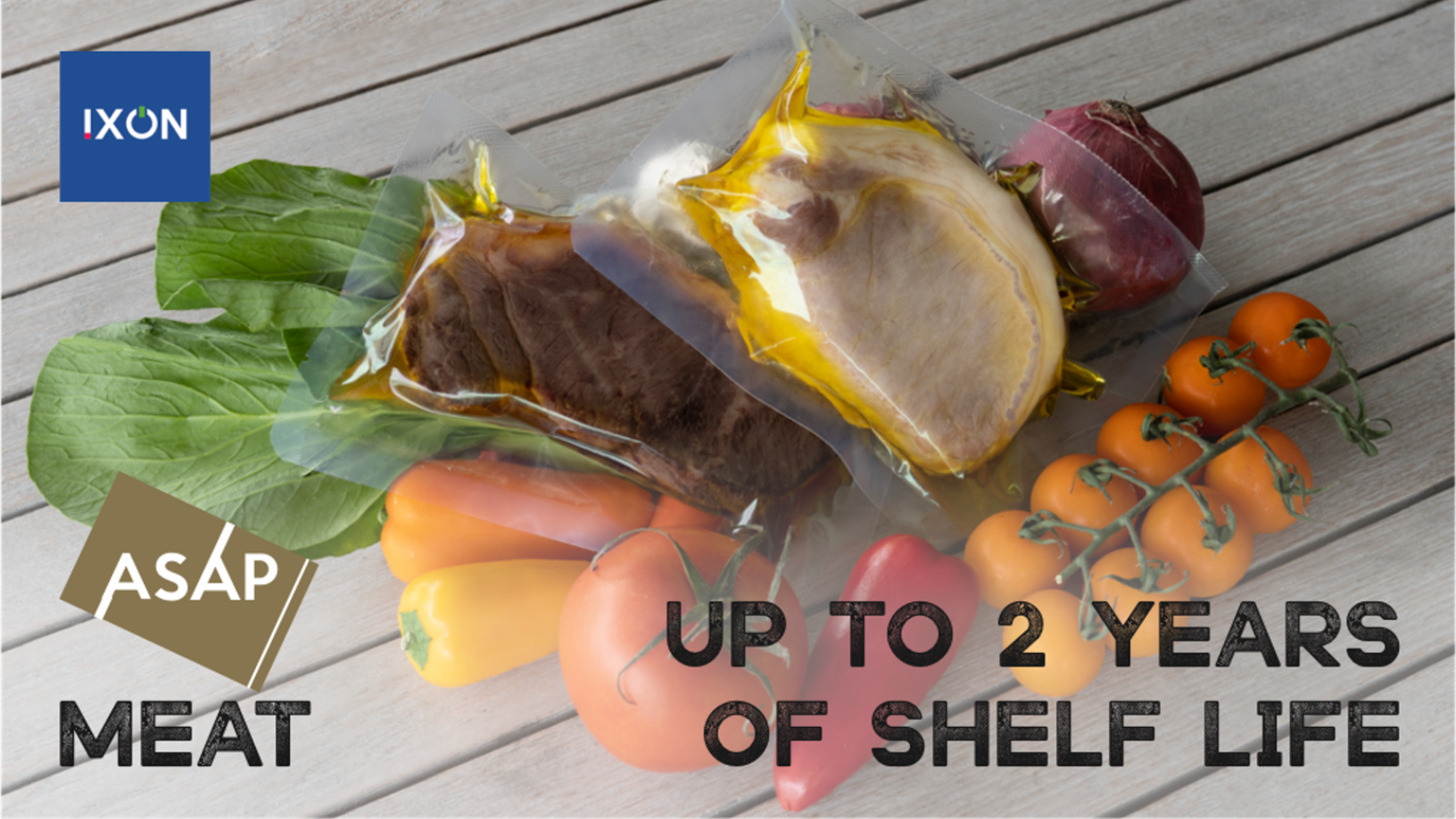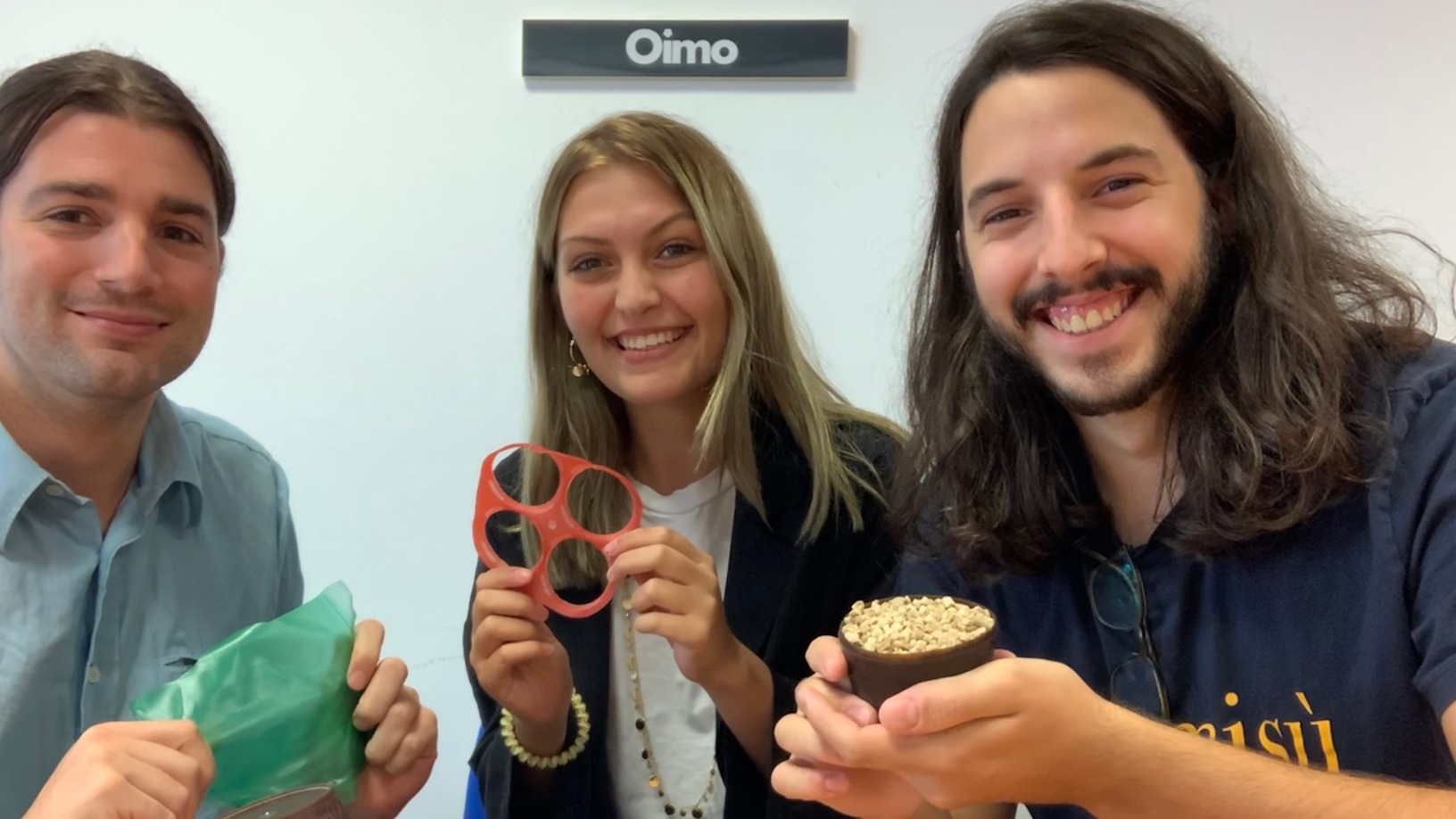Inspired by the sous-vide technique of cooking food inside vacuum-sealed plastic bags at low temperatures, Hong Kong-based startup IXON has developed a novel “advanced sous-vide aseptic packaging” (ASAP) technology to preserve food without refrigeration.
According to CEO and co-founder Felix Cheung, food producers can use the technology to extend the shelf life of meat, seafood and eggs from days to years. ASAP products – food processed and packaged using the patent-pending ASAP technology – can be stored at room temperature for up to two years.
In his pitch recently at the Future Food Asia 2021 (FFA) startup competition, Cheung, a food scientist, said figures that 100m tons of food that could feed 2.3bn people are being thrown away every year spurred him to co-found IXON Food Technology in 2017 with fellow postgraduate student Elton Ho at the Hong Kong Baptist University. The co-founders spent six years developing and fine-tuning their technology.
In 2017, the Hong Kong-based foodtech received $1m from an angel investor to build a pilot factory in the Fo Tan suburb of Sha Tin. The 80 sqm plant can make 50 kg of ASAP products per day, including US prime sirloin steaks and Canadian pork chops. IXON raised another $2m two years later.
In October 2020, IXON offered over 1,000 food products for pre-order during a Kickstarter campaign. It raised nearly $42,500, exceeding the campaign goal of about $13,000. The startup is now raising a Series A funding round for a new plant in the US, expected to be completed at the end of 2022.
This month, IXON was selected to join the Food Systems Game Changers Lab, a multi-phase accelerator program organized by EAT, IDEO, Thought for Food and the Rockefeller Foundation. A report in June from a study commissioned by Meat & Livestock Australia found “the level of funding and quality of industry partnerships infer credibility of [IXON’s] claims."
Lightly cooked
The ASAP concept started in 2015 when Cheung and Ho were completing a master’s in food analysis and food safety management. Their final year project included research on the microbial risks of edible bird’s nests prepared at 60 degrees Celsius.
“Edible bird’s nest is a model organism for studying food preservation as it has all kinds of bacteria,” Cheung said at the FFA event. “We quickly learned how to control bacteria at 60 degrees Celsius, the same temperature that professional chefs use for sous-vide cooking.”
Edible bird’s nest is a model organism for studying food preservation as it has all kinds of bacteria
After graduation, Cheung and Ho continued developing and refining the ASAP food sterilization and packaging technology, and in 2019, IXON officially debuted ASAP at the Sweden Foodtech Big Meet.
The components of each ASAP product are sterilized using different methods. Packaging materials are sterilized by using vaporized hydrogen-peroxide, a milk aseptic packaging technique in use for decades. Liquids like virgin olive oil, which the company uses to keep the food moist inside the package, are sterilized using pressurized heat.
For solid components like steaks and pork chops, only the exterior is exposed to a high temperature of 160 degrees Celsius for 60 seconds to kill bacteria and spores, while the interior remains at sous-vide temperatures from 60–80 degrees Celsius at all times.
The “lightly cooked” ASAP meat products, for example, can either be eaten as cold cuts or cooked further with other ingredients. The original flavors and moisture are retained because high-temperature thermal processing is not used. Preservatives and chemicals, commonly found in other processed and packaged foods, are also not applied to ASAP products.
According to Cheung, ASAP is the most energy-efficient food preservation method known to date, using 30% less energy than canning and 80% less energy than freezing.
Asia will be a key market
IXON has collaborated with over 25 companies worldwide, including food conglomerate Cargill, Italian chicken processor Amadori and packaging firm Sealed Air, to validate and commercialize the ASAP technology, ranging from evaluating food safety protocols to cost estimates for plant construction.
In the future, IXON will be prioritizing licensing the ASAP technology to meat processors. The startup is building a new factory in the US to prove its ASAP concept, generate early cash flow and win customer acceptance. Once put into operation, the facility will have a daily production capacity of 1 ton. The ASAP products manufactured in the US will be shipped directly to customers in Asia, which will be a key market for IXON.
Meat consumption in mainland China, Japan and South Korea is about twice the global average of 45 kg per person in 2017. In Hong Kong, it’s three times higher. “But high-quality meat does not come cheap,” Cheung said at the FFA event. “A 16-ounce prime sirloin steak that typically retails at $10 in the US would cost $30 in Asia. The higher price is largely due to the rising costs of cold chain, middlemen, as well as food waste." There is no cold chain cost for ASAP products as they can be shipped at room temperature, making imported meat products more affordable.
There is no cold chain cost for ASAP products as they can be shipped at room temperature
ASAP will become more cost-effective in the future, Cheung said. Once the production capacity hits 1 ton per day, the cost will drop to around $3 per kg, about 2–3 times more expensive than conventional food packaging solutions. "The sweet spot will come once the daily meat production reaches 4 tons when the cost will be about $1 per kg, which is actually comparable to that of conventional technology,” he added.
Automation: the next challenge
IXON organized a tasting panel session in February 2020, inviting 20 people to taste ASAP products and rate their willingness to buy on a 10-point scale. The scores rose from around five at the beginning of the survey to 9.5 after the tasting. “Once the consumers try it, they will be convinced,” Cheung said.
“I believe that, as with any ground-breaking technology, you need to educate the public on the underlying science before you can gain consumers’ trust,” Cheung said.
However, a major hurdle that has to be overcome to enable the technology to go mainstream is the automation of sterilization and packaging processes. At the Fo Tan factory, about 80% of the processing and packaging is done manually. But automation will be achieved at the new US plant where the processing time would be drastically reduced from days to minutes, Cheung said.
The startup is also exploring the possibility of deploying ASAP during space travel through NASA's Deep Space Food Challenge program. “Currently, astronauts only have dry or retort food which is fine for a few months of consumption, but not years. We think our solution would be ideal for astronauts on long-haul missions when they can enjoy a roast chicken on board,” Cheung said.
Meanwhile, IXON is continuing to improve its products to win over consumers. The company started by packaging food with oil, but consumers found it strange to see a food product immersed in extra virgin olive oil. So, IXON has worked with corporate partners to develop the latest skin packaging to present the products in a more familiar format like in supermarkets.
The ASAP technology can be applied to meat, fish, seafood and eggs, and bulkier vegetables. “Our technology is not yet applicable to baked goods, dairy, leafy vegetables, mince and fruits. However, we are working toward this,” Cheung said.














